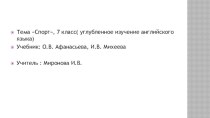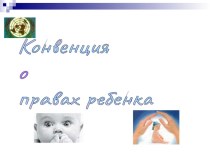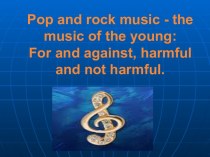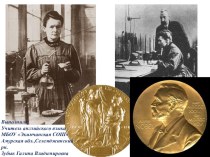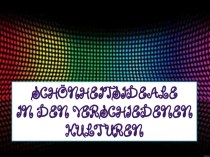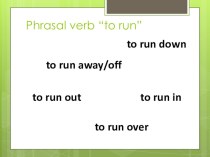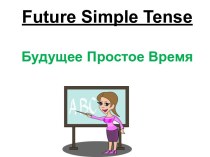- Главная
- Разное
- Бизнес и предпринимательство
- Образование
- Развлечения
- Государство
- Спорт
- Графика
- Культурология
- Еда и кулинария
- Лингвистика
- Религиоведение
- Черчение
- Физкультура
- ИЗО
- Психология
- Социология
- Английский язык
- Астрономия
- Алгебра
- Биология
- География
- Геометрия
- Детские презентации
- Информатика
- История
- Литература
- Маркетинг
- Математика
- Медицина
- Менеджмент
- Музыка
- МХК
- Немецкий язык
- ОБЖ
- Обществознание
- Окружающий мир
- Педагогика
- Русский язык
- Технология
- Физика
- Философия
- Химия
- Шаблоны, картинки для презентаций
- Экология
- Экономика
- Юриспруденция
Что такое findslide.org?
FindSlide.org - это сайт презентаций, докладов, шаблонов в формате PowerPoint.
Обратная связь
Email: Нажмите что бы посмотреть
Презентация на тему Adjectives in English
Содержание
- 2. Degrees of ComparisonThere are three degrees:Basic Comparative Superlative highhigherhighest
- 3. One-syllable AdjectivesUsually, the ending er/est is simply
- 4. When an adjective ends in y preceded
- 5. Two and more syllable adjectivesAdjectives of 2
- 6. Two and more syllable adjectivesAdjectives of 2
- 7. MJH_teacherIrregular Forms of Comparison
- 8. Adjective Order
- 9. Fact Adjectives
- 10. Opinion + Fact Adjectives
- 11. Suffixation-ful having… useful giving…
- 12. Other adjective suffixes:-able/-ible = worthy/able: readable/edible-ish = somewhat youngish-ed = having balconied
- 13. Adjective suffixes meaning “having the characteristics of…/
- 14. SuffixationNOTE! -ic vs. -ical (difference in meaning)an
- 15. Скачать презентацию
- 16. Похожие презентации
Degrees of ComparisonThere are three degrees:Basic Comparative Superlative highhigherhighest
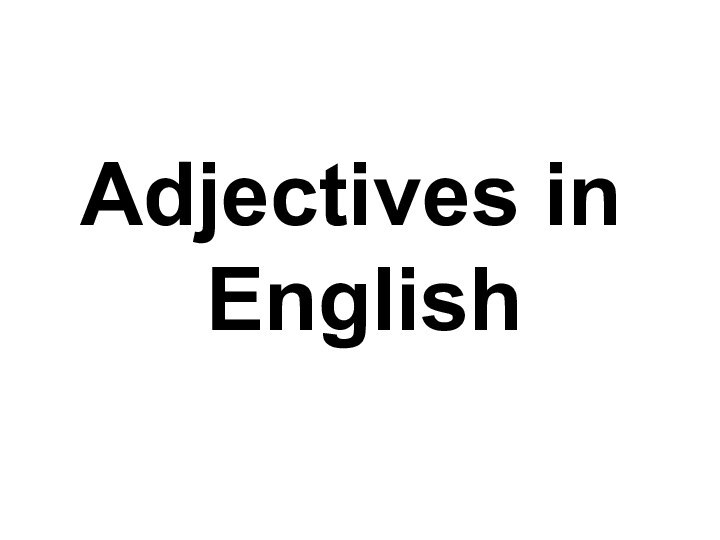
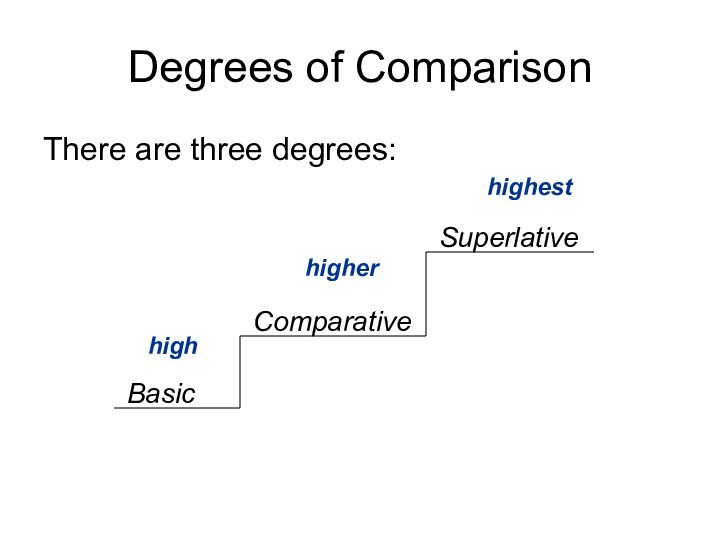
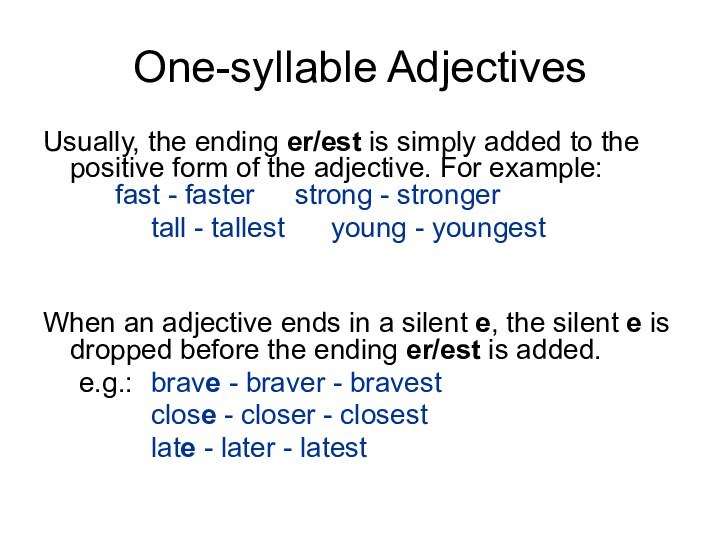
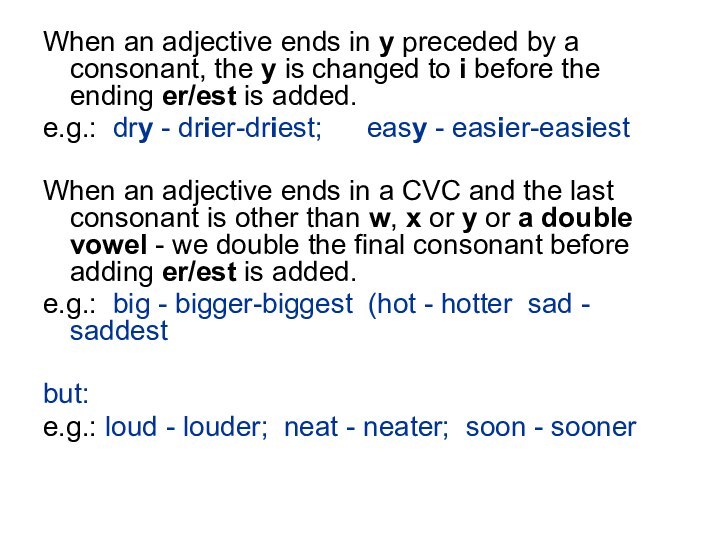
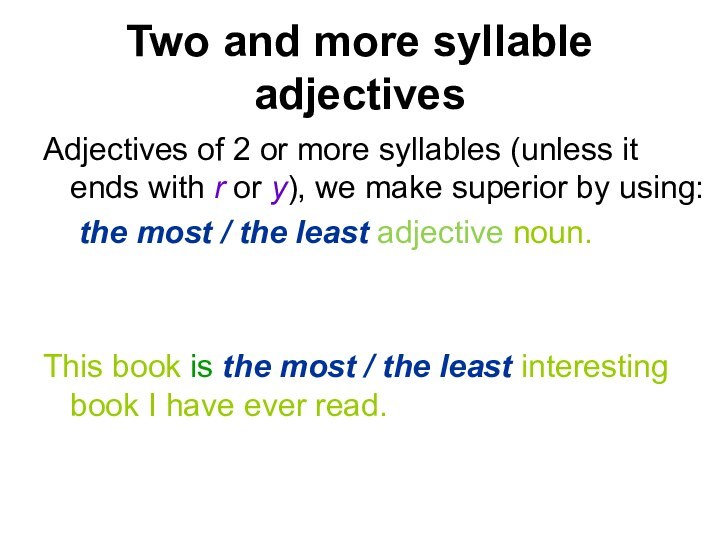
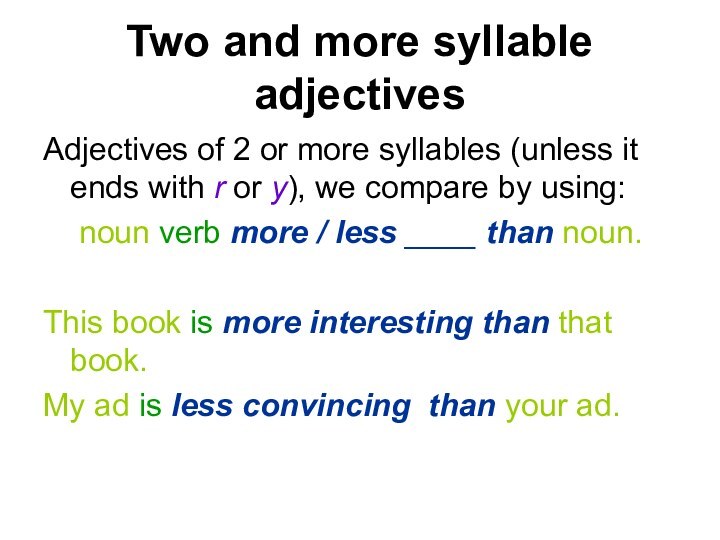
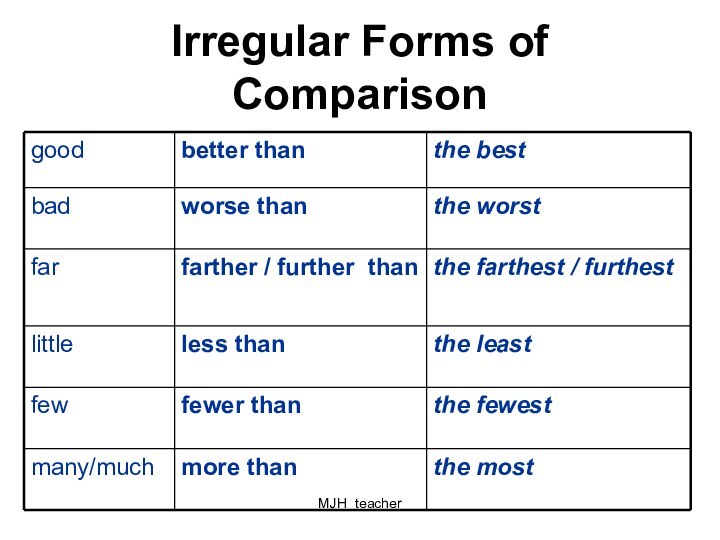
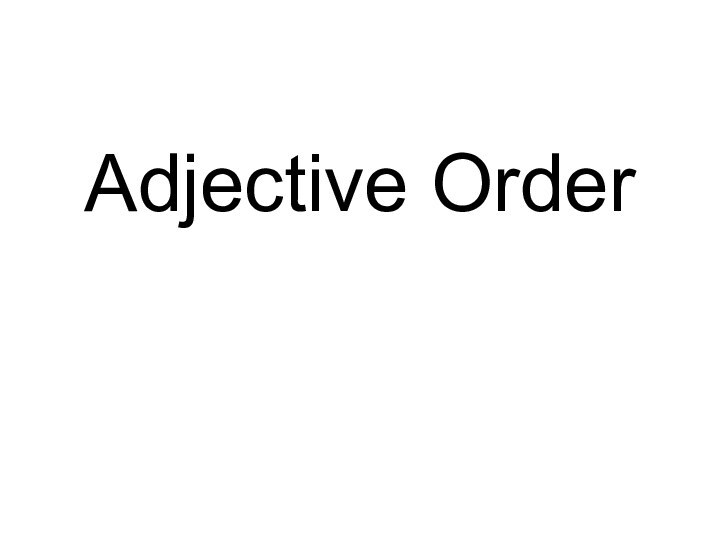
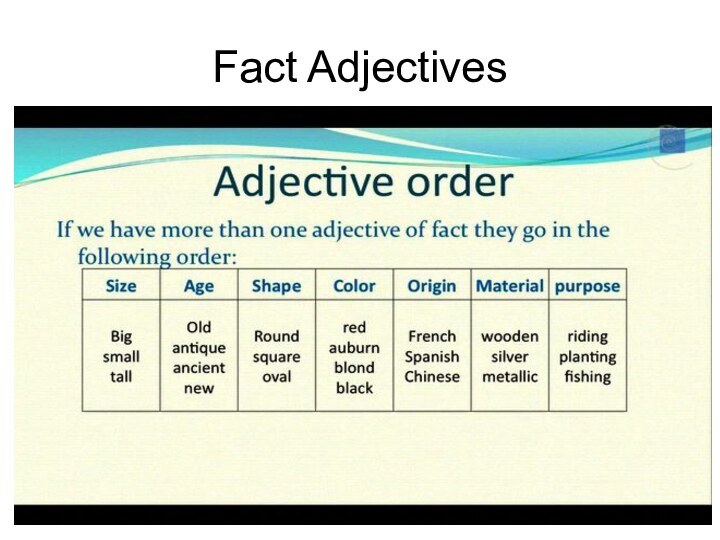
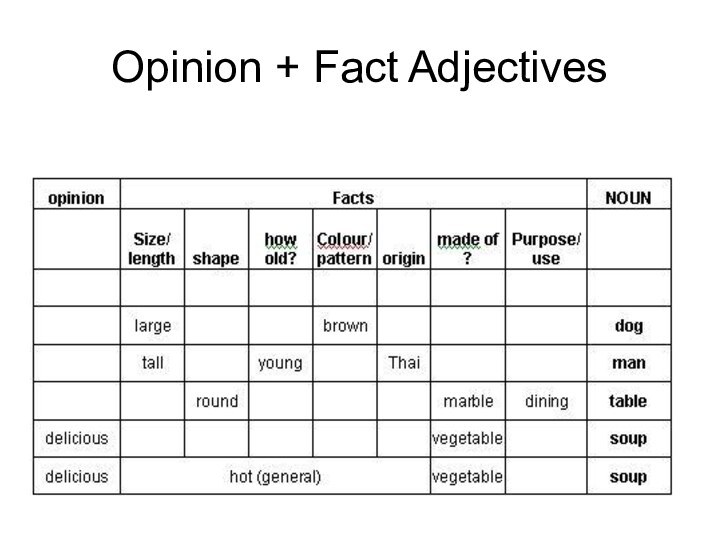
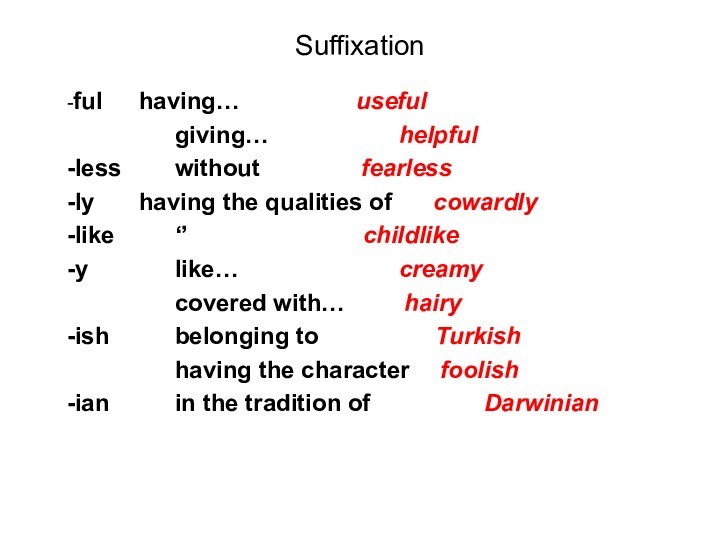
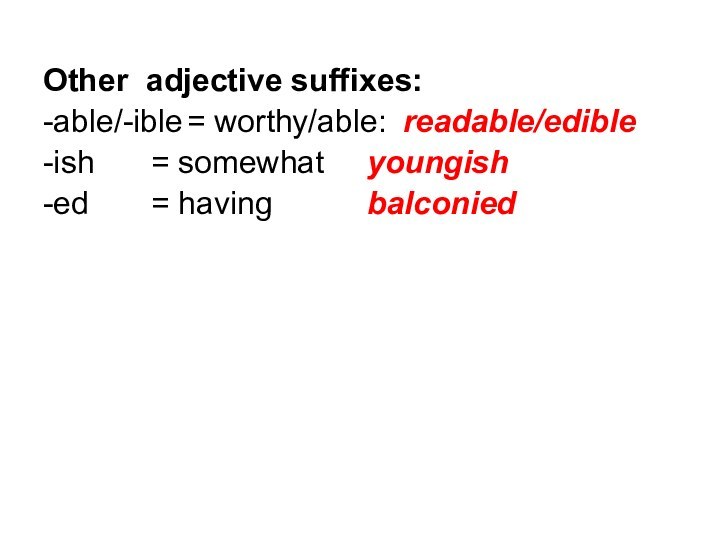
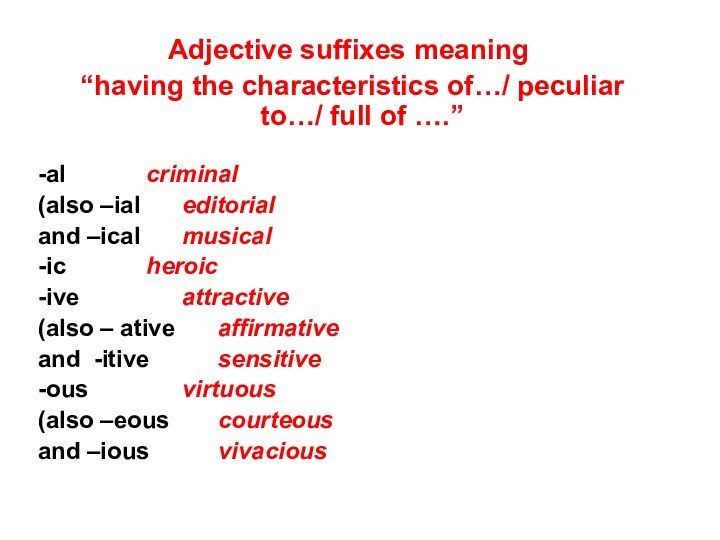
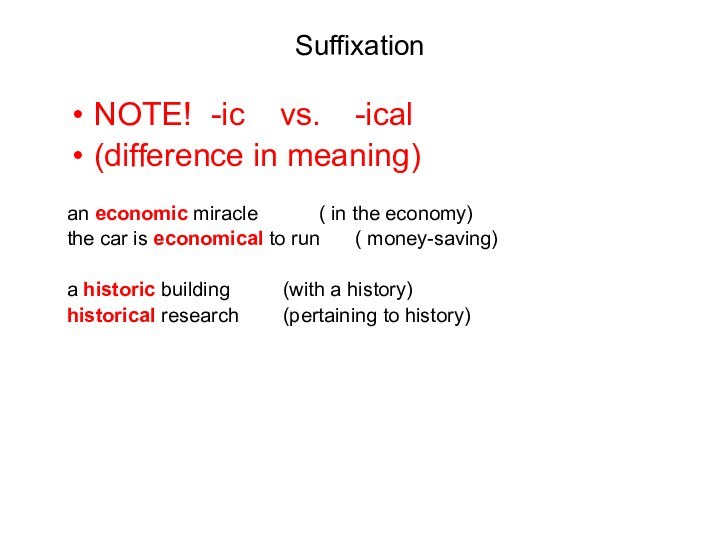
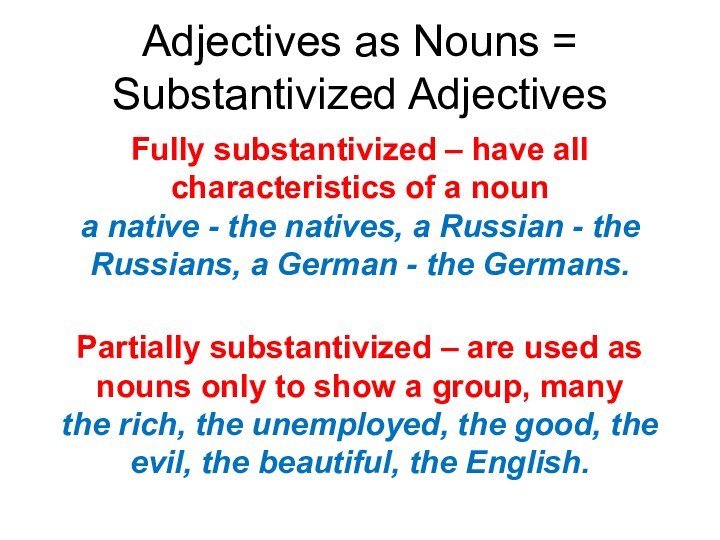
Слайд 3
One-syllable Adjectives
Usually, the ending er/est is simply added
to the positive form of the adjective. For example:
fast - faster strong - strongertall - tallest young - youngest
When an adjective ends in a silent e, the silent e is dropped before the ending er/est is added.
e.g.: brave - braver - bravest
close - closer - closest
late - later - latest
Слайд 4 When an adjective ends in y preceded by
a consonant, the y is changed to i before
the ending er/est is added.e.g.: dry - drier-driest; easy - easier-easiest
When an adjective ends in a CVC and the last consonant is other than w, x or y or a double vowel - we double the final consonant before adding er/est is added.
e.g.: big - bigger-biggest (hot - hotter sad - saddest
but:
e.g.: loud - louder; neat - neater; soon - sooner
Слайд 5
Two and more syllable adjectives
Adjectives of 2 or
more syllables (unless it ends with r or y),
we make superior by using:the most / the least adjective noun.
This book is the most / the least interesting book I have ever read.
Слайд 6
Two and more syllable adjectives
Adjectives of 2 or
more syllables (unless it ends with r or y),
we compare by using:noun verb more / less ____ than noun.
This book is more interesting than that book.
My ad is less convincing than your ad.
Слайд 11
Suffixation
-ful having… useful
giving…
helpful
-less without fearless
-ly having the qualities of
cowardly-like ‘’ childlike
-y like… creamy
covered with… hairy
-ish belonging to Turkish
having the character foolish
-ian in the tradition of Darwinian
Слайд 12
Other adjective suffixes:
-able/-ible = worthy/able: readable/edible
-ish = somewhat youngish
-ed = having balconied
Слайд 13
Adjective suffixes meaning
“having the characteristics of…/ peculiar
to…/ full of ….”
-al criminal
(also –ial editorial
and –ical musical
-ic heroic
-ive attractive
(also – ative affirmative
and -itive sensitive
-ous virtuous
(also
–eous courteousand –ious vivacious
Слайд 14
Suffixation
NOTE! -ic vs. -ical
(difference in meaning)
an economic
miracle ( in the economy)
the car is economical to
run ( money-saving)a historic building (with a history)
historical research (pertaining to history)

